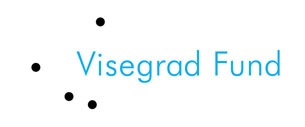 "For Czech producers looking for minority foreign
coproducers on their projects, it is still difficult to persuade production
companies, broadcasters and foreign funds to participate. But it is also a
question of experience, knowledge, contacts and self-confidence and that is
developing," explains Pavel Strnad, The Chairman of Association of
Producers in Audiovisuality in Czech
Republic (www.asociaceproducentu.cz).
"For Czech producers looking for minority foreign
coproducers on their projects, it is still difficult to persuade production
companies, broadcasters and foreign funds to participate. But it is also a
question of experience, knowledge, contacts and self-confidence and that is
developing," explains Pavel Strnad, The Chairman of Association of
Producers in Audiovisuality in Czech
Republic (www.asociaceproducentu.cz).
Strnad´s company Negativ (www.negativ.cz) shot their two biggest films of the year as coproductions. Tomáš Luňák´s animation film Alois Nebel shown at Venice out of competition was a 65 percent /25 percent /10 percent coproduction between the Czech Republic, Germany and Slovakia. The second film (still in production), the 1.6m euro fairy tale Blue Tiger by Tereza Horváthová and Petr Oukropec was a coproduction between Negativ, German's Blinker Filmproduktion (www.blinkerfilm.de), and Slovakia's Arina (www.arinafilm.sk).
More often Czech filmmakers go into coproduction with Slovak minority money from distributors, as evidenced by some major hits currently in cinemas. The 3.4m euro war film Lidice with Czech (and international) star Karel Roden was shot as a coproduction of Bioscop, www.bioscop.cz) with funding from the Czech and Slovak divisions of distributor Magic Box (www.magicbox.cz). Similarly, Jiří Vejdělek,s blockbuster sex comedy Men in Hope from Tomáš Hoffman´s production company INFINITY Prague that was shot as a coproduction with Rudolf Biermann's IN film (www.infilm.cz) providing Slovak funding.
The State Fund for Support of Czech Cinematography began allocating 1m euros annually for minority coproductions in 2009, with the policy bearing its first fruits in 2011. "We welcome such support as a step forward, although we have to always explain why coproduction should be based on reciprocity between majority and minority cooperations and why the Czech Fund should also finance German films. But if we wanted bigger film names to come and shoot in the Czech Republic -- as they do in Poland - we have to increase that budget," Strnad said.
The most visible example of a minority coproduction was the Czech 10 percent participation in the French-British-Czech film Les bien-aimés by Christophe Honoré which was the closing of this year's Cannes Film Festival. The 7.1m. euro romantic comedy starred Catherine Deneuve, Miloš Forman and Chiara Mastroianni in a coproduction between French company Why Not Productions, British company Sixteen Films and Czech company Negativ (Pavel Strnad, Kateřina Černá).
There are also some highly anticipated films in production or postproduction to be premiered in early 2012 that capitalise on coproduction with Poland. One example: the nearly 3m euro crime drama In The Shadows from director David Ondříček and scriptwriter Marek Epstein set in Czechoslovakia in 1950 with Czech actor Ivan Trojan and Germany's Sebastian Koch (Oscar´s film Das Leben der Anderen). Ondříček's company Lucky Man Films (www.luckymanfilms.com) coproduces together with producer and Karlovy Vary managing director Kryštof Mucha, Polish company Centrala Film (Jacek Naglowski, Agnieszka Janowska, www.centralafilm.pl) and Slovak producer Patrik Pašš´s Trigon Production (www.trigon-production.sk). Barrandov Studio and German studio Ehud Bleiberg-Bleiberg Entertainment also participate.
Film buffs are looking forward to cameraman Martin Duba´s debut, the drama Bella Mia shot as a coproduction of Miroslav Šmídmajer and Bio Illusion (www.bioillusion.cz) with Polish funding from Fundacja im. Ferdynanda Magellana. Another Polsh-Czech coproduction, the 1.5 million euro action film action film Yuma from Polish director Piotr Mularuk pairs young, rising Czech producer Pavel Berčík´s Evolution Films (www.evolutionfilms.cz) with Avion film and Poland's Yeti Films.
The next year will also see the release of Four Suns directed by Bohdan Sláma in a coproduction of Negativ and Germany's Pallas Film (www.pallasfilm.com). Director Mira Fornay (whose debut film was a coproduction with Ireland) is now working on 1.1 m euro story of a skinhead going straight, My Dog Killer, shot as a coproduction of Viktor Schwarcz CINEART TV Prague, postproduction compony Jordi Niubo (www.iopost.cz) and Juraj Buzalka´s Mirafox (www.mirafox.sk). Richard Řeřicha Don´t Stop, an arthouse story from 1983 communist Czechoslovakia is coproduction from Ondřej Zima of Evolution Films (www.evolutionfilms.cz) and Slovak Zuzana Chadimová´s Film Frame Productions (www.filmframeproductions.com) with TV backing from Czech HBO (www.hbo.cz).



















